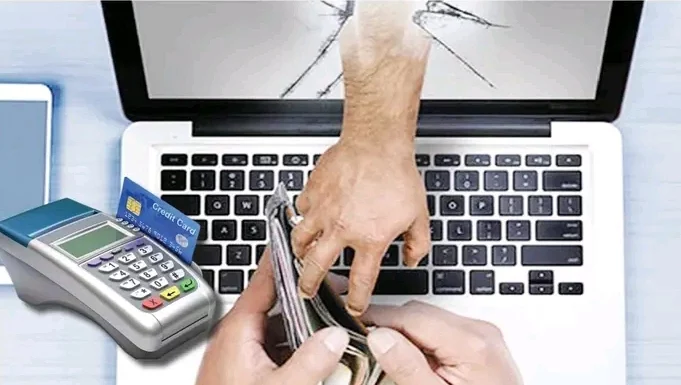As the federal government transmutes the country more into a digital economy, and Nigerians embrace the change, cyber criminals are cashing in on billions of naira by eluding the banks’ digital security systems.
NATIONAL ECONOMY reckons that every week, thousands of accountholders are being defrauded of their hard-earned money.
The situation is being made worse by the dwindling cybersecurity expertise in the banking industry as Nigerians migrate in droves to Hesperian nations in search of greener pastures, leaving the local industry bare of the right hands to fight the menace.
The threat promises to accelerate as the Central Bank of Nigeria (CBN) embarks full swing on its long-touted cashless policy come January 31, 2023. Already, electronic payment or e-payment transactions are estimated to be worth an average of N30 trillion monthly. If adequate security measures are not put in place, Nigeria may become a cesspit of cybercrimes in the near future.
Findings showed that as more Nigerians are embracing e-transactions daily, so is the surge in cybercrimes, as cybercriminals are getting adept in the clean sweep of bank accounts of unsuspecting users.
Already this year, the Nigerian Communications Commission (NCC) has issued more than 10 cyber alerts to warn Nigerians about the possible danger associated with or targeted at some platforms, including Cisco and lately telegram, which these cyber criminals exploit to wreak havoc.
Activities of cybercriminals have taken a new turn, as they become more daring and innovative and subsequently unleash more terror on their prey. On a weekly basis, bank customers complain of hacked accounts, where criminals wipe out all their life savings.
For perspective, between July and September 2020, Nigerian banks, according to the Nigeria Interbank Settlement System (NIBSS), lost N3.5 billion to fraud-related incidents, representing a 534-per cent increase from the same period in 2019, when it was N552 million. Stakeholders are worried that the losses would be huge compared to previous years.
In 2018, commercial banks in Nigeria lost a cumulative N15 billion ($39 million) to electronic fraud and cybercrime. This was a 537 per cent increase on the N2.37 billion loss recorded in 2017. In the same period in 2018, over 25,043 bank customers and depositors lost N1.9 billion to cyber fraud, with fraud incidents rising by 55 per cent from the previous year’s 17,600. Clearly, there is a steady progression in cybercrime.
Nigeria’s Consumer Awareness and Financial Enlightenment Initiative (CAFEi) had projected a $6 trillion loss by 2030 to cybercrime within and outside Nigeria. These crimes are committed mostly through phishing and identity theft.
The NIBSS said the trend from the beginning of 2020 has been that the web and mobile channels are viable mediums for exponential fraudulent gains.
Cybercrime has been projected to worsen as e-payment transactions gain more patronage. Statistics from the NIBSS showed that transactions worth N32.3 trillion were performed electronically in August, a volume that has been on steady monthly growth through the NIBSS Instant Payment platform (NIP), bringing the total value of e-payment deals in the first nine months of the year to N271.5 trillion.
With increasing cybercrime on the horizon, the personnel needed to fight the menace is diminishing, most of them seeking greener pastures abroad, and leaving the local industry bare at the mercy of criminals.
One authority said banks have lost talented and tech-savvy executives to Western nations who crave their expertise and are willing to pay more for their services. The problem spans the entire industry as close to 600 of these tech-savvy personnel have relocated abroad, according to the official, who pled anonymity. He said close to 60 experienced bank IT personnel have left the country just this year
The menace has spread down the bottom to local POS operators. Raqiyat, a bread hawker in Mpape Hills in Abuja lost N10,000 two weeks ago to fraudsters. She withdrew some money using her ATM card at a POS operator and mysteriously, in her view, saw debit alert of N10,000 about 30 minutes after. She returned to the spot immediately to confront the POS operator but he was nowhere to be found, even though it was just 5 pm, well within the POS operator’s working hours.
An IT expert, Uche Ugamba, told NATIONAL ECONOMY that some supposed POS operators have a way of cloning ATM cards for fraudulent purposes.
Also, Olukayode Onafawakan disclosed to NATIONAL ECONOMY that he lost his ATM card but found it a few hours later. Three days after that, he received a volley of debit alerts totaling N500,000. He believes his card was cloned during the brief loss.
Princewill Echeson, a nurse at a private hospital in Lagos told NATIONAL ECONOMY that he received a call from an unknown person claiming to be a bank official trying to get some details from him to correct some information on his account details. He said he was convinced that the caller was indeed representing his banker and gave all the needed information. He said his account was emptied after three hours.
One of the easiest means of defrauding customers is by phishing, a process by which scammers hoodwink unsuspecting customers to giving out their bank details.
All banks advise customers to never give out their account details to anyone asking for them because the banks have all the details they got from customers when they were opening their accounts.





